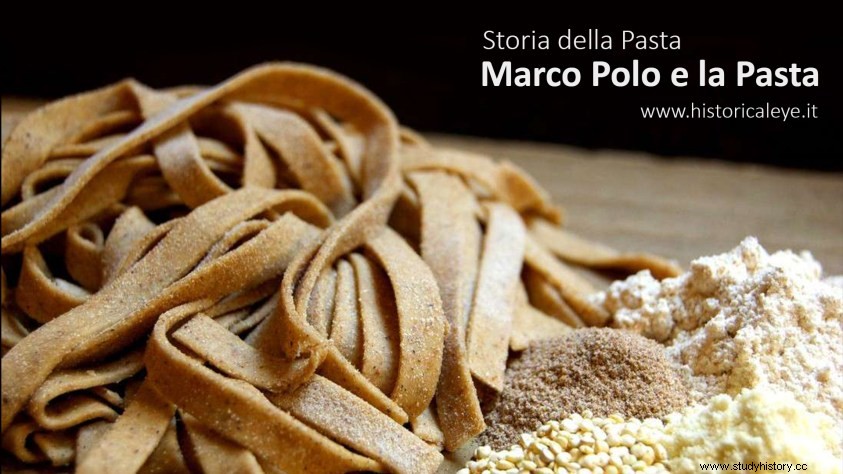
Pasta, the pride and pride of us Italians. Pasta is the symbol of Italy in the common imagination, it is our greatest wealth, and according to legend, it was we Italians who exported it all over the world, after having imported it, thanks to Marco Polo, from the East.
The truth, however, is slightly different, and if it is true that Italy has spread pasta all over the world, it is not true that it came from the East.
I will return to Marco Polo in other posts, here I will limit myself to reporting some references to pasta.
As we know, according to legend, Marco Polo , around the end of the 13th century, he would return from China, where he had been, between 1271 and 1295, advisor to the emperor. On his return, the myth tells us, Marco would have brought with him lyric powder, pasta and many other things unknown to Westerners.
However, in the 1880s, a now elderly Salinbene da Parma , Franciscan monk, in his Chronicle, tells us about when, as a young man, many years before his birth as a young man, he used to eat stuffed pasta, a typical dish of the medieval tradition, the Salinbene chronicle tells us unequivocally that pasta was known in Italy at least 50 years before Marco Polo's trip, and consequently that it was not he who brought it.
So how and when did pasta arrive in Italy?
Unfortunately we don't know for sure yet, but we do know that around 1154, the Arab geographer Al-Idrin , mentions in his writings a food made of flour, in the shape of threads, which he calls triyah and which was packaged in Palermo.
The text of Al-Idrin is today the oldest known document, in which reference is made to pasta, but unfortunately, it only tells us that in the mid-twelfth century, this was already widespread, at least in southern Italy, but it does not tell us how long.
According to some historians, some types of pasta may have already been produced at the time of the Megale Ellas (Magna Grecia) even if with some slight variations from "Pasta" as we understand it today. These historians refer in particular to the food of the dead, "makar" from which the word macaroni may have been derived.
